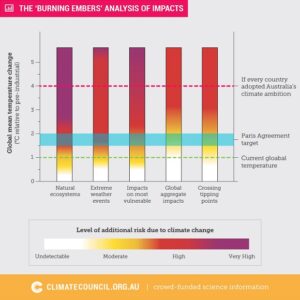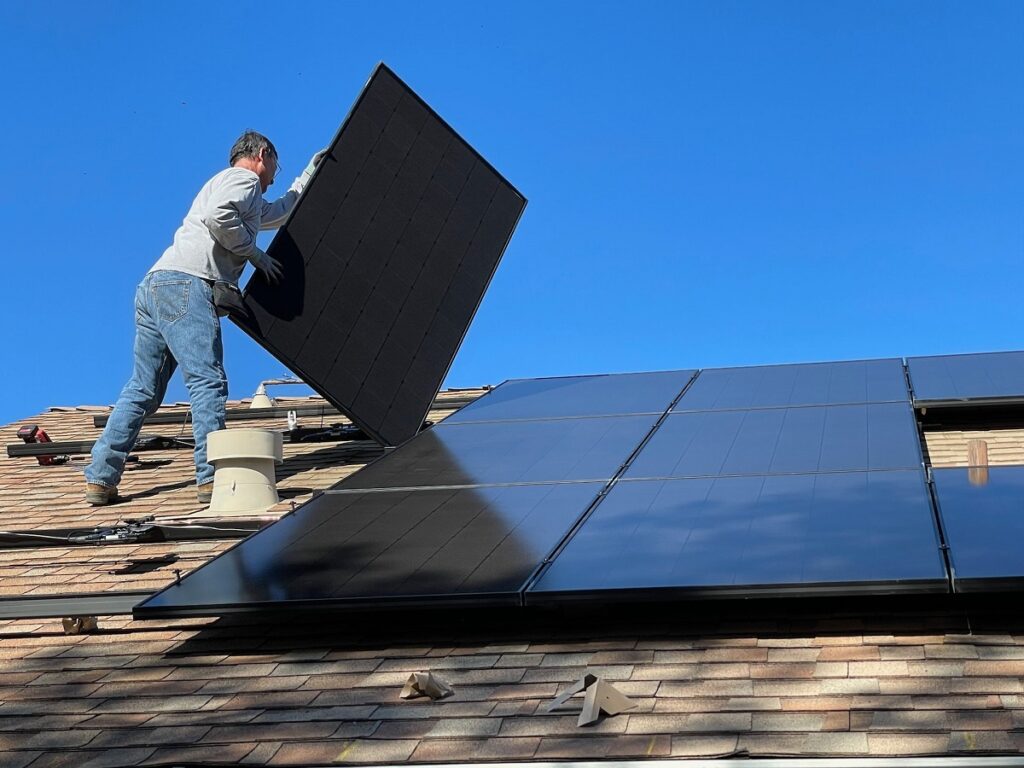Australia faces a decision: fast-track the transition to 100 percent renewable energy, or suffer the catastrophic consequences of climate change. That’s one of the conclusions of a new report from the Climate Council. The ‘Critical Decade 2017: Accelerating Climate Action’ report claims Australian climate change action is falling behind the rest of the world.
A decade of political bickering about climate and energy policy has left the nation bereft of an approach to reduce emissions.
While the rest of the world moves towards net-zero emissions, Australia’s greenhouse emissions have steadily risen every quarter since 2015. This means Australia would be unable to keep to its 2°C Paris Agreement target.
Global Climate Laggards
“We are known as a global climate laggard,” the report states.
Australia’s emissions reduction target (ERT) is also unusually weak compared to other G20 nations.

Australia has set an ERT of 26-28 percent below 2005 levels – not nearly enough to avoid dire climate consequences.
“The Australian Government’s approach, if adopted globally, would condemn us to a dramatic rise in global temperatures,” says the report.
Australia must join renewable energy revolution
In the past 10 years, the world has seen a seismic shift from fossil fuels to renewable energy.
Installations of solar and wind power globally have doubled every 5.4 years. China and the USA, particularly, have cut vast amounts of coal from their energy mixes.
According to the report, maintaining this level of renewable expansion could allow the world to completely eliminate greenhouse gas emissions by 2040.
“Solutions to the climate challenge are well-known, cost-effective and available today,” it states.
Next decade critical for Australian climate change action
However, the report warns that Australia’s and the world’s window for action on climate change is rapidly closing.
Temperature rises above 2°C would trigger a cascade of extreme warming events. The impact on human well-being is significant. Populations face increasing mortalities from heat, fires, rising sea levels and water-borne disease.
Prime farming land, coastal regions and fragile natural ecosystems would bear the brunt of these climate events.
Quick, decisive action is required by Australia to avoid climate disaster. The report urges a rapid phase-out of thermal coal power and a ban on all new coal mining.
Finally, governments must stop treating the issue of climate change as a ”political football”, and build a bipartisan, consensus approach emissions policy.


